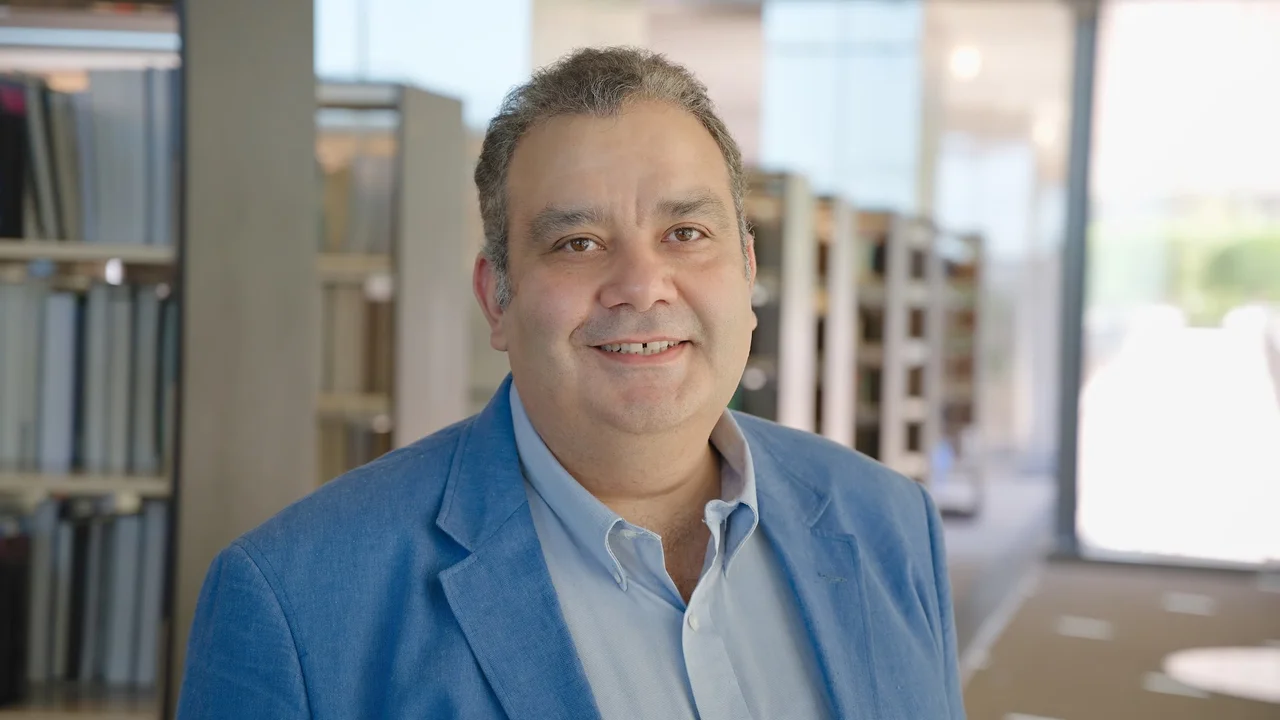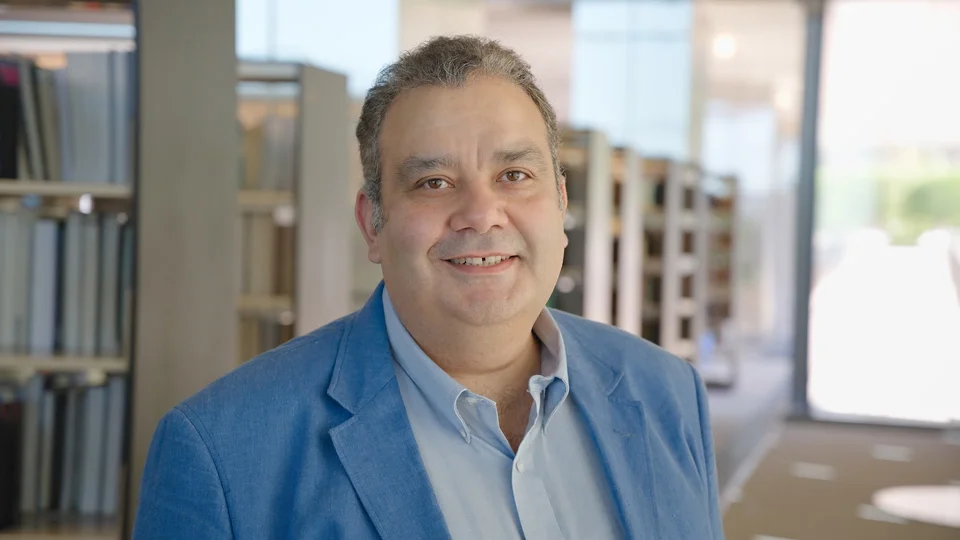
Professor Eltawil officially inducted as a Senior Member of the National Academy of Inventors
Earlier this year, KAUST Professor of Electrical Engineering Ahmed Eltawil was elected as a Senior Member of the National Academy of Inventors (NAI). Eltawil was officially inducted as a Senior Member at the recent NAI 10th Annual Meeting held in Florida, U.S.
About
By David Murphy
Earlier this year, KAUST Professor of Electrical Engineering Ahmed Eltawil was elected as a Senior Member of the National Academy of Inventors (NAI). Eltawil was officially inducted as a Senior Member at the recent NAI 10th Annual Meeting held in Florida, U.S. Eltawil joined 62 of his fellow accomplished academic inventors from around the world in a class consisting of 37 research universities, government, and non-profit research institutes. The 2021 class of Senior Members are named inventors on over 625 issued U.S. patents.
The NAI Senior Member Program is an exclusive award that recognizes innovative eco-systems found at NAI Member Institutions such as KAUST. The NAI Senior Membership consists of faculty, scientists, and administrators who have successfully patented, licensed, and commercialized their research. According to the NAI, Senior Members have also produced technologies with the potential for a real impact on societal welfare.
In his new role as a Senior Member, Eltawil will foster a spirit of innovation within KAUST while educating and mentoring the next generation of inventors.
“It was an honor to be elected to senior member of the NAI and attend its annual meeting. The talks and discussions were refreshing and shed new light on how academia, industry, and government can collaborate to create an innovation-centric eco-system,” he said.
The 10th Annual Meeting was held from October 31 to November 2, 2021, and brought together academic inventors from around the world around the theme "Look Back, Think Forward: Framing the Future of Innovation." Presentations focused on counterfeit electronic identification, artificial intelligence, emerging technologies, and funding innovations.
During the event, Eltawil also gave a keynote speech on KAUST, its history, and research output and received a plaque celebrating the University as a new institution member of the NAI. KAUST Vice President for Research and Distinguished Professor of Materials Physics & Device Engineering, Donal Bradley, was also officially honored as a Fellow of the NAI.
“The keynote speech was a great opportunity to reflect on the progress that KAUST has achieved over the past 12 years. Together with other member institutions at the NAI, KAUST will continue to deliver innovative solutions to world challenges.”
In addition to the NAI’s honor, he was also named a recipient of the “Innovator of the Year” Award bestowed by the Henry Samueli School of Engineering at the University of California, Irvine (UCI) earlier this year.
Research focus
Eltawil joined KAUST in August 2019 from UCI, where he had spent the previous 15 years working in the Department of Electrical Engineering and Computer Science. He was also the founder and director of the University’s Wireless Systems and Circuits Laboratory.
At KAUST, he is the principal investigator of the Communication and Computing Systems Lab (CCSL). The program at CCSL focuses on research in the area of efficient architectures for mobile computing and communications systems in general and wireless systems in particular. Areas of interest include next-generation communication systems design, low power systems, sensor networks, and machine learning. These research directions are part of a larger vision of architecting smart and connected systems that enable future communities.
A system integration expert for wireless systems, he also has a well-established pedigree of collaborating with academia and industry. He continually serves as an advisor in the development of wireless systems for leading international companies.
“With every new generation of wireless devices come opportunities and challenges; opportunities to connect, collaborate and innovate; challenges to design, architect and ultimately deliver innovations that create societal benefit,” Eltawil concluded.
